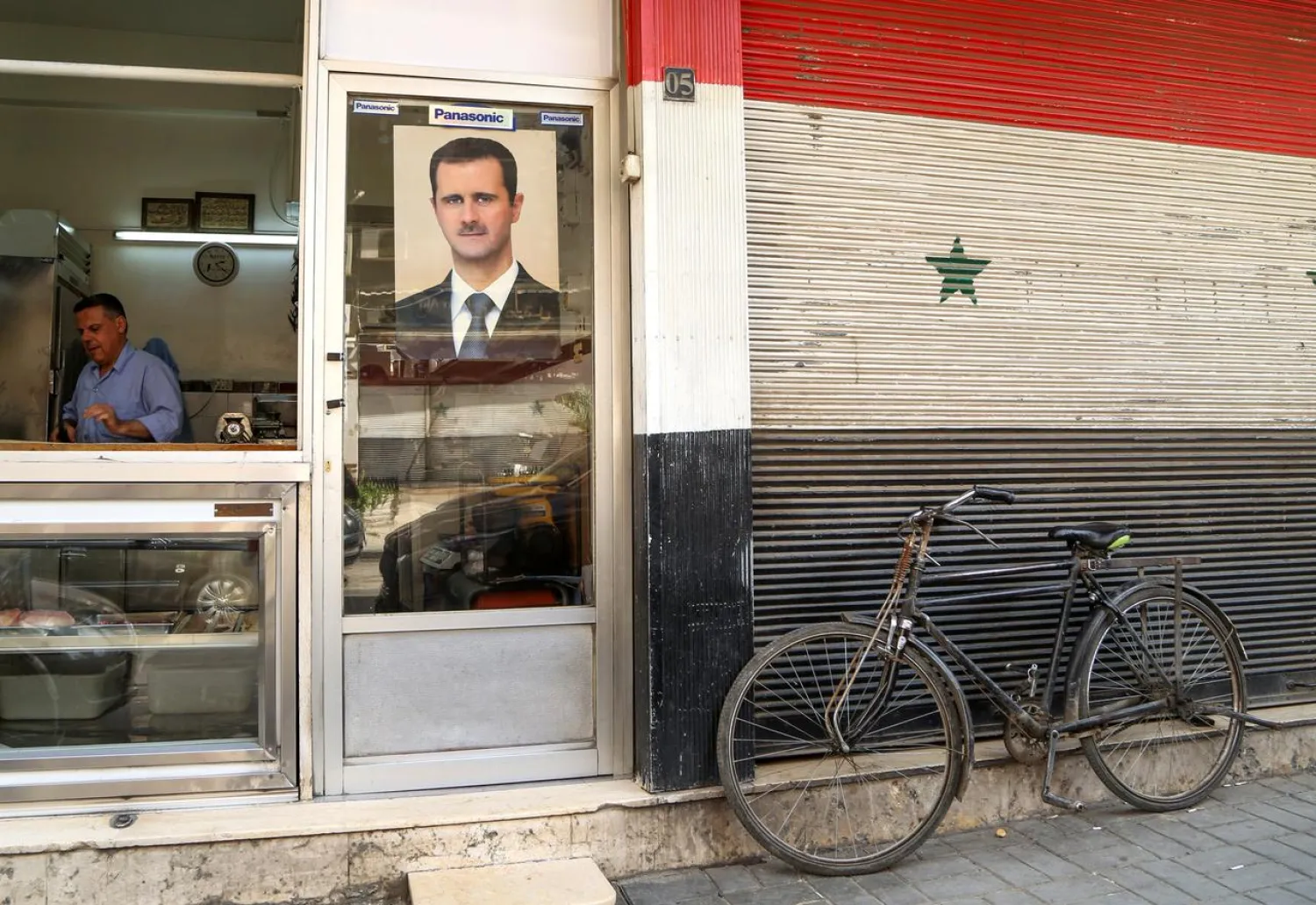The United States on Wednesday imposed its toughest sanctions ever targeting Syrian president Bashar Assad to choke off revenue for his government in a bid to force it back to United Nations-led negotiations and broker an end to the country’s nearly decade-long war.
"We anticipate many more sanctions and we will not stop until Assad and his regime stop their needless, brutal war against the Syrian people," Secretary of State Mike Pompeo said in a statement.
He called the sanctions "the beginning of what will be a sustained campaign of economic and political pressure to deny the Assad regime revenue and support it uses to wage war and commit mass atrocities against the Syrian people."
Pompeo was announcing the coming into force of the Caesar Act, which punishes any companies that work with Assad and has already led the Syrian currency to plummet in value.
The first batch of designations target 39 people or entities, including Assad personally as well as his wife Asma -- the first time she has been targeted by US sanctions. They also target Assad’s brother, sister, a few senior generals and Iranian militia.
Under the law, any assets in the United States will be frozen. President Assad has been under US sanctions since he began to crush an uprising in 2011.
Born in Britain to a cardiologist father and diplomat mother, Asma is a former investment banker who had styled herself as a progressive reformer and modern face of the Assads.
But Pompeo in his statement charged that Asma, with the support of her husband and her own Akhras family, "has become one of Syria's most notorious war profiteers."
Effects felt in Syria
In addition to Bashar and Asma Assad, those designated on Wednesday include Assad's sister Bushra; his brother, Maher, and his wife, Manal; Mohamed Hamsho, the head of the Damascus Chamber of Commerce; his wife, Rania al-Dabbas; his son, Ahmed, a show jumper in Syria’s equestrian team in the 2012 Olympics; and Ghassan Ali, a right-hand man of Maher Assad, and Samer al-Dana, who are leaders of the Syrian military's Fourth Division.
Assad, backed by Russia and Iran, has succeeded in winning back virtually all of Syria except the Idlib area after a war that has killed more than 380,000 people.
The Caesar Act, passed by the US Congress last year with bipartisan support, seeks to prevent Assad's normalization without accountability for human rights abuses.
It penalizes in the United States any company that deals with Assad and blocks reconstruction assistance from Washington.
Syria's central bank on Wednesday devalued the pound after the currency depreciated for weeks on the black market in anticipation of the law.
Pompeo said the goal was to force Assad into accepting Security Council Resolution 2254 of 2015 -- which called for a ceasefire, elections and political transition in Syria.
A UN-driven process has made no headway, with Assad last year launching a major offensive backed by Russian airpower to retake Idlib.
Pompeo said the United States was undertaking the pressure campaign "in full cooperation with other like-minded countries."
The European Union has imposed its own sanctions over Syria and a French court separately on Wednesday convicted an uncle of Bashar over money-laundering and misappropriation of government funds.
The Caesar Act is named after a former Syrian military photographer who fled at great personal risk in 2014 with 55,000 images of brutality in Assad's jails.
‘Broken country’
Syria has already been under US and European Union sanctions that have frozen the assets of the state and hundreds of companies and individuals. Washington already bans export and investment in Syria by Americans, as well as transactions involving oil and hydrocarbon products.
But the new sanctions can freeze the assets of anyone dealing with Syria, regardless of nationality, and cover many more sectors. It also targets those dealing with entities from Russia and Iran, Assad’s main backers.
In a call with reporters, a senior administration official said investment plans in areas, including in reconstruction, that were to aid Assad’s government had already fizzled out due to fear of the Caesar Act. “It’s meant to keep the foreign investors out,” he said.
Several analysts agreed.
“If you are engaging in these sectors, you will be cut off from the US financial system, which is the most powerful in the world. For you as a company, you choose between that and investing in a broken country,” said Elizabeth Tsurkov, a fellow at the Foreign Policy Research Institute, according to Reuters.
The Washington-based Syria Center for Justice and Accountability said the Caesar sanctions are designed for this purpose, “aiming to deter foreign financial engagement and commercial reconstruction agreements with the Assad government.”
But the group said the sanctions also contain provisions exempting humanitarian goods and services, similar to other sanctions, and intended to ensure the flow of aid and mitigate the economic consequences of the sanctions on the Syrian people.









